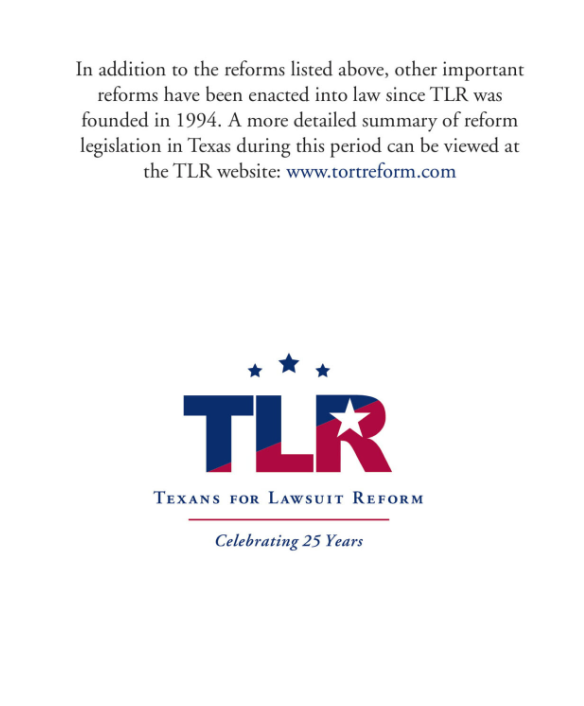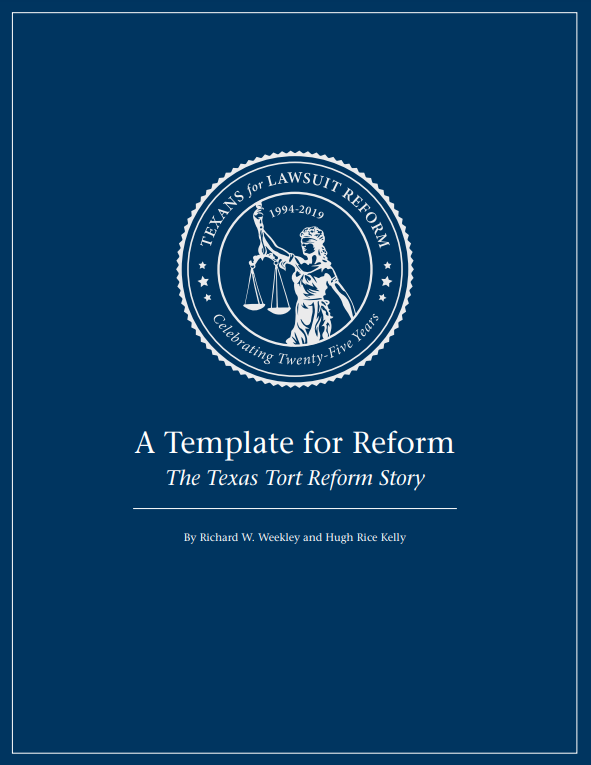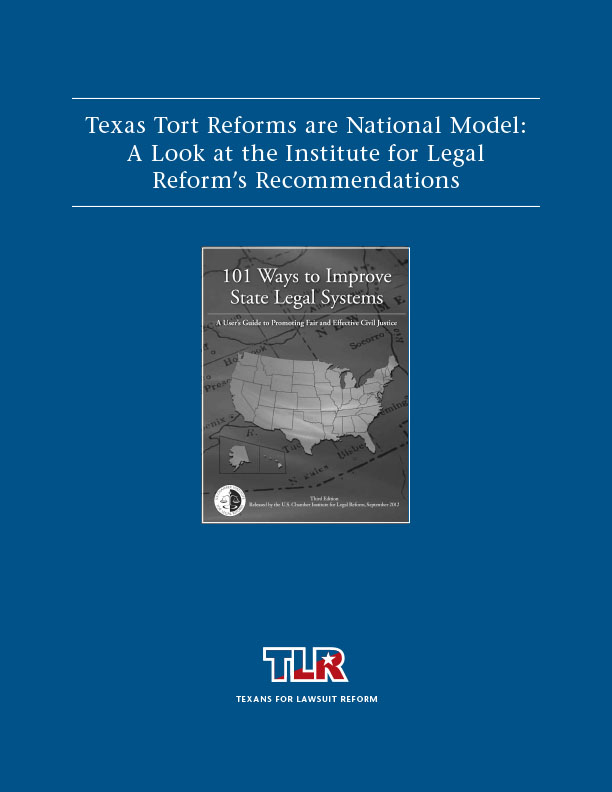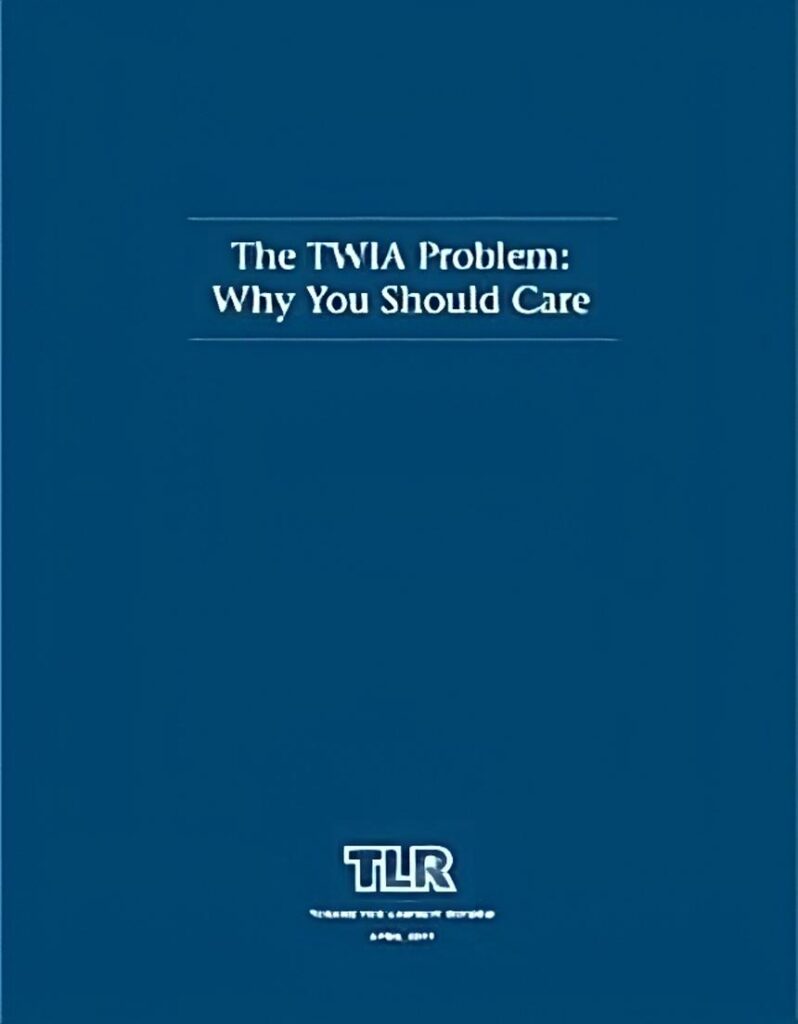KNOW THE FACTS ABOUT CONSUMER PROTECTIONS IN TEXAS
Texans for Lawsuit Reform is committed to helping our friends and neighbors deal with the aftermath of Hurricane Harvey. We hope the information provided on this page will help you with some aspects of your recovery from the storm.
Important Facts Concerning Harvey Insurance Claims and Texas Law
• File your claim with your insurance company as soon as it is safe to do so. Check your policy as soon as possible or call your insurance company and file a claim for all of your property that was damaged or destroyed by the storm.
• Most property owners who carry flood insurance have policies through the National Flood Insurance Program (NFIP), which is governed by federal law, not state law. Call the insurance company that issued your policy to find out how to file a claim under the NFIP. The NFIP Claims Handbook is available here: https://www.fema.gov/media-library/assets/documents/6659.
• Many coastal Texans have windstorm coverage through the Texas Windstorm Insurance Association (TWIA), which is covered by its own state law. Claims under those policies should be made directly to TWIA. To make a claim with TWIA, please visit: https://www.twia.org/claimscenter/.
• Whether you have insurance or not, you can find information and resources at https://www.disasterassistance.gov/ or call 1-800-621-FEMA.
• Beware of unsolicited calls, emails, or social media posts saying they can help you get more money out of your insurance companies. Remember the old adage of, “if it seems too good to be true, it probably is.”
Don’t be Fooled by Misinformation
Be careful of widespread misinformation about Texas’ new insurance law (HB 1774), which concerns lawsuits against insurance companies, but does not change the process of policyholder claims to insurance companies.
It’s important to emphasize that HB 1774 does not apply to TWIA policies or to policies issued by the National Flood Insurance Program, contrary to some misleading reports. For the facts from the Texas Department of Insurance, see: http://www.tdi.texas.gov/news/2017/tdi08302017.html
The new law does not impose a 60-day period before you can file a claim with your insurance company. It merely enforces an already existing 60-day written notice requirement that applies when you file a lawsuit against an insurance company. This notice requirement ensures the company is aware of your complaint and has had an opportunity to adequately address it before being sued. It is part of existing Texas law.
The new law discourages the feeding frenzy by lawyers and contractors following natural disasters in Texas. These bad actors have taken advantage of thousands of hard-working Texans over the past several years. The new law also encourages out-of-state insurance adjusters to work in Texas following a massive disaster like Harvey. In the following days and weeks, it will be critically important for out-of-state adjusters to work in Texas to ensure insurance claims are evaluated and paid in a timely manner.
For a detailed explanation of House Bill 1774, please visit: https://www.tortreform.com/advocate/tlr-august-advocate-2017#1774
File Your Insurance Claim Whenever It Is Safe to Do So
Most homeowner’s policies in Texas do not cover damage caused by a flood, but they do cover damage caused by other elements of a storm, like wind. If you are unsure about the cause of damage to your property, you should file a claim with your insurance company and work with them to evaluate the cause of damage.
Flood insurance is issued through the National Flood Insurance Program. If your home was flooded and you have flood insurance, also file a claim with the insurance company that issued your National Flood Insurance Program Standard Flood Insurance Policy.
Protect Yourself from Bad Actors
A few specific things you should know:
• It is illegal for a contractor to offer to negotiate with your insurance company on your behalf.
• It is illegal for a contractor to offer to “waive” or “rebate” your deductible. Under the law, you must pay your deductible.
• It is illegal for a lawyer to directly solicit your business (a practice called barratry, but more commonly known as “ambulance chasing”). Lawyers can advertise for your business, but they cannot solicit your business on their own or through someone else.
• If a public adjuster seeks to represent you, he is entitled by Texas law to take up to 10 percent of whatever money the insurance company pays on your claim.
• If a lawyer seeks to represent you in your negotiations with your insurance company, he or she will charge you a fee, which could be as high as 40 percent of your recovery from the insurance company.
Beware of anyone – lawyer, adjuster, contractor or anyone else – claiming to help you get more money from your insurance company. They may add to the length of time it takes to resolve your claim, and you may end up getting less, after expenses and fees.
Texas has Strong Laws to Protect You
While a lawsuit should be your last resort because of the risk, time delay and costs of litigation, if you must sue your insurance company to get your claim paid, rest assured that Texas law provides you the strongest consumer protections in the nation.
Texas requires private insurance companies to quickly acknowledge, investigate and pay your insurance claim if something is owed under your policy. The law is called the Prompt Payment of Claims Act and is found in Chapter 542 of the Texas Insurance Code.
If an insurer denies or underpays your claim, you can sue them to recover what is owed to you under your policy. In addition, you may also recover a 10-20 percent per year penalty from the insurance company (it “floats” based on the prime lending rate), plus court costs, pre- and post-judgment interest, and the amount of fees owed to your lawyer for representing you (so long as he or she handles the lawsuit reasonably and competently, according to the law).
Texas law also requires your insurance company to attempt in good faith to make a prompt, fair and equitable settlement of your claim as soon as its liability for your claim becomes “reasonably clear.” This is called the Unfair Claim-Settlement Practices Act and can be found in Chapter 541 of the Texas Insurance Code.
If you prevail against your insurance company on a claim under the Unfair Claim-Settlement Practices Act, you can be awarded your actual damages, plus up to three times your actual damages, court costs, pre- and post-judgment interest, and the amount of fees owed to your lawyer for representing you (so long as he or she complies with the law).
The Texas Deceptive Trade Practices/Consumer Protection Act also may apply to your dispute with your insurance company. It also provides for recovery of damages, costs, interest, and attorney fees.




